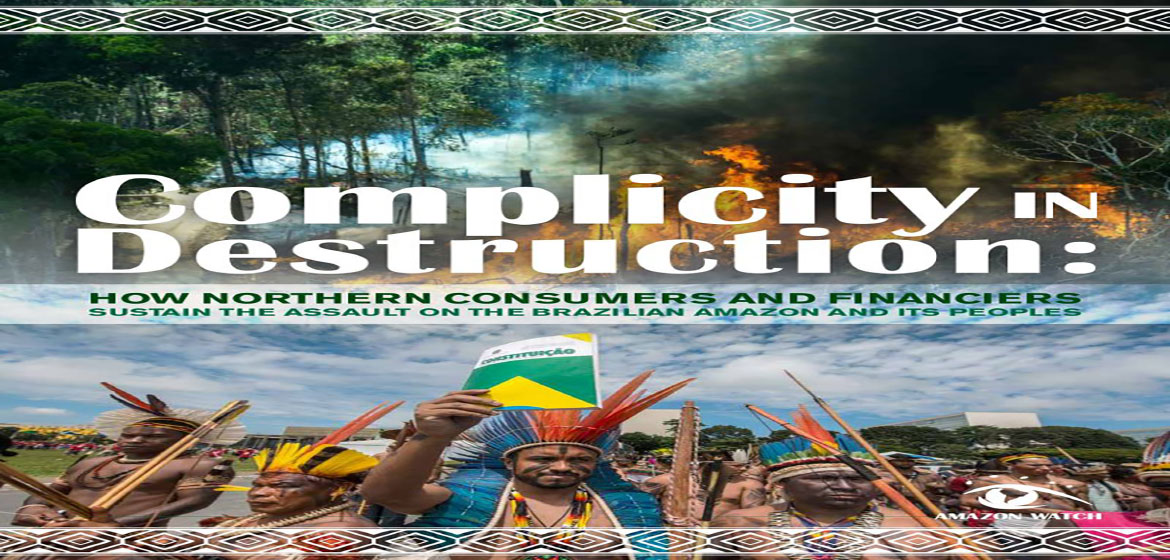How northern consumers and financiers sustain the assault on the Brazilian Amazon and its peoples
As the world's largest rainforest, the Amazon provides 20% of our oxygen, houses 10% of the planet's biodiversity, and helps stabilize the global climate. The world needs it to survive. No one understands this better than the indigenous and traditional communities who call it home, and who are proven to be its best stewards.
Despite their importance, the Brazilian Amazon and its peoples are suffering the worst assault in a generation. Deforestation is mounting steadily while hard-fought environmental and human rights protections, critical to the future of the rainforest, are under serious attack. Indigenous and traditional communities themselves suffer disproportionate violence and repression for defending their rights and forests.
Members of Brazil's ruralista congressional bloc, representing a conservative faction of the nation's powerful agroindustrial sector and in coordination with extractive industries such as mining, are the principal actors driving this retrograde agenda. In a clear-cut conflict of interest, the family businesses of many ruralista lawmakers directly benefit from their legislative attacks.
The ruralistas are working to strip protections for forests and land rights in order to gain unfettered access to areas currently safeguarded from industrial activity. Such activities include cattle ranching and soybean farming, which are the principle drivers of deforestation in the Brazilian Amazon. Their success would spell disaster for this region's forests and the indigenous and traditional peoples who call them home, while jeopardizing global climate stability.
Much of the political and economic power that enables the ruralista agenda is upheld by global traders, consumers, and financiers. European and United States businesses that purchase from and finance ruralista businesses therefore enable them to reshape Brazil's socio-environmental landscape to our collective detriment.
The crisis facing the Amazon requires innovative solutions that strive to get to the root of the problem. By naming bad actors stridently attempting to undermine protections of the rainforest and its peoples for their personal gain, and identifying the global companies, household brand names, and financial institutions who enable them, we can build new forms of leverage over these actors and press for reform.
This act of solidarity with Brazil's movement for indigenous rights and environmental justice originates in the Global North. While we acknowledge the North's oversize role in environmental mismanagement, human rights abuses, and climate change, we believe that through informed choices, the consumers of Europe and the United States can considerably influence the destructive agenda of Brazil's ruralista bloc, helping to put an end to its assault on the Amazon, indigenous rights, and global climate stability.
Source:
Related to SDG 10: Reduced inequalities, SDG 13: Climate action and SDG 16: Peace, justice and strong institutions



